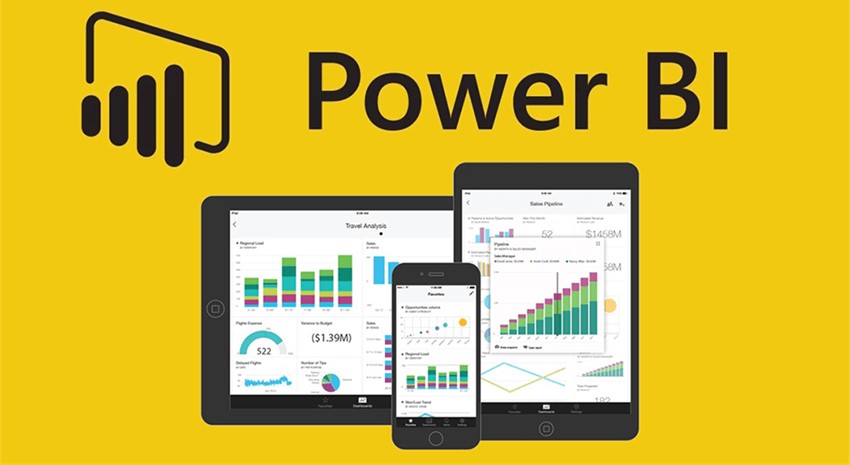Who is a Business Data Analyst, and Why is this role important today?

Who is a Business Data Analyst, and Why is this role important today?
A business data analyst is a professional who specializes in analyzing data to help organizations make informed decisions. They gather, organize, and interpret data from various sources to provide insights and recommendations that can help businesses improve their operations, processes, and bottom line.
In today's fast-paced business environment, the role of a business data analyst has become increasingly important. Organizations are generating massive amounts of data from a variety of sources, including social media, customer interactions, sales transactions, and more. However, this data is of little value unless it is analyzed and interpreted to provide actionable insights.
What is a Business Data Analyst?
Business data analysts are professionals with a very dynamic role to play in an organization. The role of a business analyst is confused with that of a data analyst; however, the difference between business analyst and data analyst could be enormous depending on the organization. Business data analyst professionals act as a bridge between the technology domain and the business domain of an organization. So, what does a business data analyst do daily?
A business data analyst is trusted with the responsibility to analyze the business, document the organizational processes, evaluate the business models, and suggest new technological changes. In addition, a business data analyst is also responsible for improving the existing process, products, services and software, performing data analysis, and identifying the loopholes that prevail.
If you look at it from a broader perspective, the role of a business data analyst also entails saving money for the business by identifying the potholes and remedying the situation through complex data analysis techniques. Business data analysts are also responsible for overall business growth and expansion. Based on their research, they need to identify new avenues and customer base to expand the business.
What Does a Business Data Analyst Do?
Often, a Business Data Analyst is a jack-of-all-trades. All in all, they oversee crunching the numbers for businesses. They record and evaluate business and organizational processes, as well as the many business models that exist in the industry. Considering their findings, they provide advice on how to improve technology. A corporate data analyst is also accountable for refining current processes, goods, services, and software, undertaking data analysis, and discovering the gaps that persist.
Using data analysis to solve business challenges is one of the ways in which Business Data Analysts contribute to the success of businesses. In addition, they utilize their research to extend the consumer base of a firm.
Now that you have a fair idea as to what a business data analyst does, you should explore why the role of a business data analyst is essential, business data analyst salary, and more.
The Importance of a Business Data Analyst Today
A business data analyst plays a crucial role in helping organizations make sense of their data. They use analytical tools and techniques to extract meaningful insights from data and identify trends, patterns, and opportunities that can help improve business performance. They may also use data visualization tools to create reports and dashboards that communicate these insights to stakeholders in an easy-to-understand format.
Some of the key responsibilities of a business data analyst include:
• Gathering data from various sources: This involves collecting data from different sources such as databases, spreadsheets, and web analytics tools.
• Cleaning and organizing data: Data can be messy and unstructured, and a data analyst must clean and organize it to make it usable.
• Analyzing data: A business data analyst must use analytical tools and techniques to analyze data and identify trends, patterns, and insights.
• Creating reports and dashboards: Once the data is analyzed, the analyst must create reports and dashboards that communicate the insights to stakeholders.
• Making recommendations: Based on the insights derived from data, a business data analyst must make recommendations to stakeholders on how to improve business performance.
The importance of a business data analyst cannot be overstated. In today's data-driven business environment, organizations that can effectively analyze data to gain insights and make informed decisions have a significant competitive advantage. A business data analyst plays a crucial role in this process by helping organizations gather, analyze, and interpret data to make informed decisions that drive business growth and success.
Business data analysts act as a bridge between the technological and non-technological departments; this means that they are responsible for understanding the demands of non-IT departments and carefully planning a solution for them without bringing up any differences. Implementing new technological changes also improves the functioning of the business and reduces the time taken to complete a particular task while enhancing the overall process.
Another important reason why a business data analyst is essential to organizations today is to make the digital transformation easier. They simplify the complexities of digital transformation and help organizations optimize time and resources by using data-driven decisions.
How Does One Become a Business Data Analyst?
Being a Business Data Analyst does not need to follow a well-trodden route. You can't get the job by following a set of rules, but there are a few things you must keep in mind to get there.
Candidates that are well qualified will have:
• A bachelor's degree in a management-related field, such as Business Management.
• A specialist qualification in data analysis.
• Expertise in database management systems and the SQL programming language, among other things.
• An understanding of what it's like to work as an analyst at the starting level.
When it comes to corporate jobs, a Business Data Analyst has the potential to get to the top. Because of their crucial role in decision-making, they are now unavoidable.
When it comes to data-driven enterprises, you need employees who can assist you make strategic choices in addition to interpreting the data. Because of this, the more data knowledge you have, the better off you will be.
You can also take advantage of AITP Bootcamp’s to jumpstart your career in Business Analysis, designed with the prestigious Data Science and Analytics Professors and is rated among the Top Business Analysis and Data Science Bootcamp This program can help you jumpstart your career as a Business Analyst or as a Data Scientist.
Business Data Analyst Job Prospects and Salary
The demand for a business data analyst is rising on an unprecedented scale in the present scenario. However, there is a paucity of skilled business data analysts who can take up this challenging role. This has created a peculiar situation where the demand for business data analysts is higher than the current supply of talented professionals, making it a lucrative career prospect for those who are enthusiastic about business analysis.
Those who aspire to work as a business data analyst can enroll for a Data Analyst Course to gain an edge over the competition. Business data analyst skills will often lead to a rewarding career opportunity for those seeking to learn and make a career in the field of data analysis.
The salaries for the role of business data analysts are very lucrative. The exact figure depends on various factors such as experience level, job location, industry, type of organization. In India, the average annual salary for the role is 7 lacs. In e-commerce giants like Amazon, the senior-level business analysts’ average earnings are somewhere around 72,300 to 95,000 and many factors play in determining the salary range the chances if you getting a good pay also depends upon your qualification and that is why AITP has the best data Science and Data Analytics courses designed to help you get the best pay out there. It’s safe to say that Business data analytics jobs will continue to grow in demand and will see a spike in professionals’ annual earnings in this field.
Conclusion
In conclusion, a business data analyst is an essential role in today's business environment. They help organizations make informed decisions by gathering, analyzing, and interpreting data. By providing insights and recommendations, a business data analyst can help organizations improve their performance and gain a competitive advantage.









